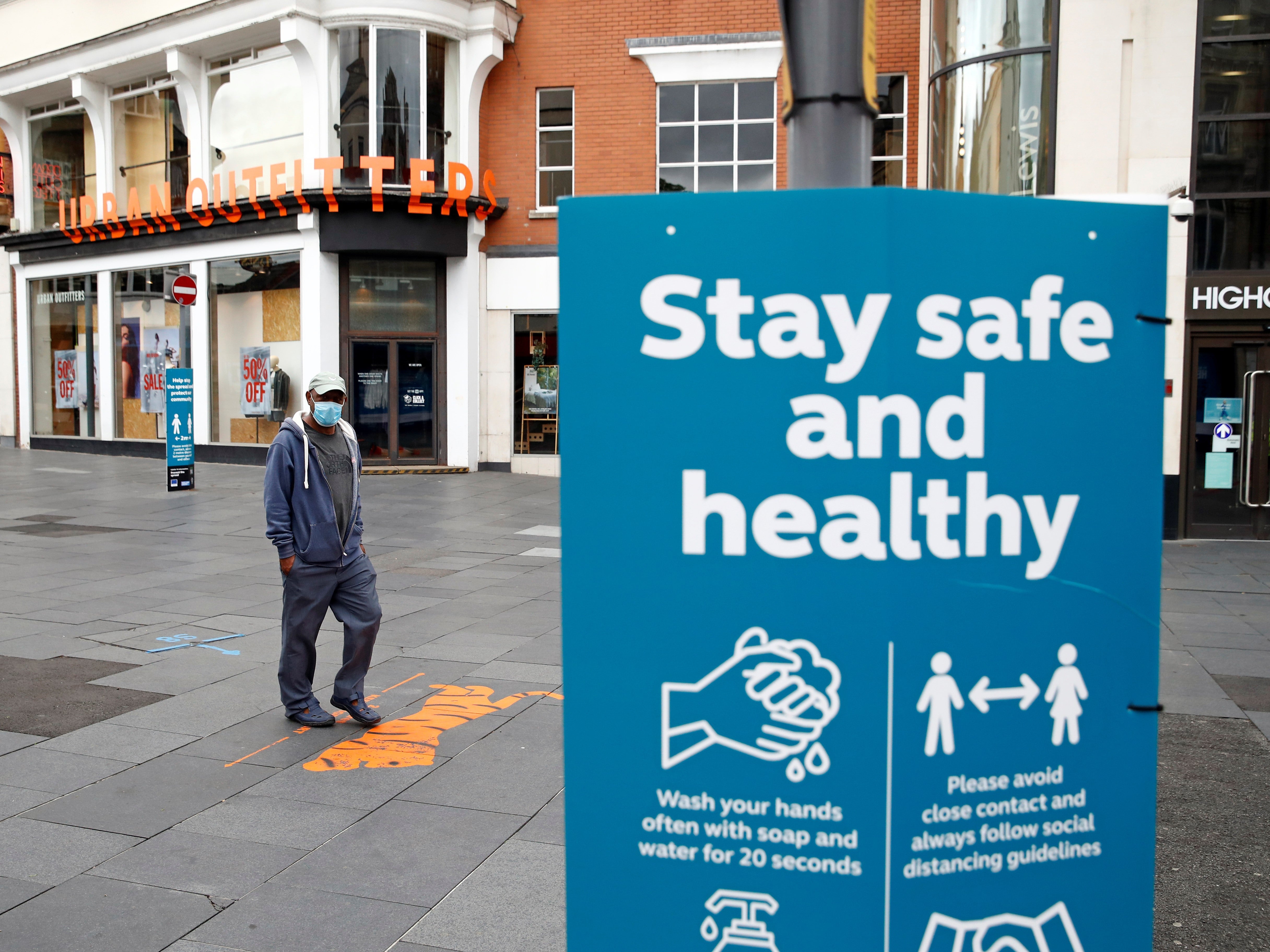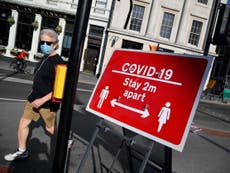As lockdown restrictions return, it’s vital we protect the rights and care of Britain’s disabled
We must devise credible long-term solutions to ensure that the lessons learned about the unequal impact of the virus are incorporated into our ongoing response, says David Isaac


It seems a long time since March when the country came together to support the government’s response to tackle the coronavirus to protect us all. Although some of us were worried about the draconian powers included in the Coronavirus Act, we were prepared to put our reservations to one side to support the national effort at a time of global crisis. However, it has become clear that the impact of the pandemic has been greatest on some of those least able to bear it, especially disabled people, who have been amongst those most affected by Covid-19.
It is vital that we devise credible long-term solutions to ensure that the lessons learned about the unequal impact of the virus are incorporated into our ongoing response.
A staggering 60 per cent of people who have died during the pandemic have been disabled. We already know that limited access to full-time work, poor educational support and facilities, inadequate or regular personal care and limited financial support mean that many people with disabilities aren't fully able to participate in society. All too often they are treated as second class citizens. During lockdown, the Coronavirus Act made it possible for local authorities to limit the provision of services to people with disabilities.
We also know that there was frequent encouragement of “Do Not Attempt Resuscitation” orders in many care settings and that the need for already limited support for children with special educational needs intensified. We also witnessed breaches of the Equality Act by some retailers who denied the carers of disabled people access to shops to buy provisions. Most recently the relaxation of shielding arrangements has left many disabled people and their families confused or, in some cases, unable to secure adequate food or medical support. Even during a time of national crisis this is surely unacceptable treatment of a large number of people who are in need of our care and attention.
This week’s report by the Equality and Human Rights Commission (EHRC) makes it very clear that our response to the virus has profoundly affected equality and human rights in this country. The report was commissioned when I was chair of the EHRC and its evidence confirms what we feared about the unequal impact of the disease on ethnic minority communities, the disruption to young people’s education and the devastation wrought on the care sector.
We know the impact of the virus on social care falls disproportionately on the elderly and disabled. The UK has not been alone in struggling to provide services to disabled communities during the crisis as disabled people and their advocates around the world have called for urgent action to protect those who need more - not less - support during the pandemic. What is different about the UK's response is that limited understanding and inadequate services were already a feature of our support for disabled people and their families. Covid-19 has only intensified the way the nation de-prioritises people with disabilities.
Disabled people, disability and human rights groups, and parliamentarians have long been vocal about the poor treatment of disabled communities in this country. During the pandemic the debate has rightly focused much attention on the introduction of “easements” or cuts and reduced services and treatment – but this issue is about more than that. It is a test for the sort of society we want to be, how we treat all our people, how we regard their human rights, and whether we honour our international treaty commitments.
As winter progresses and we experience more localised lockdowns, the government must urgently respond to the recommendations of the EHRC report to put in place robust arrangements to protect at least 14 million people living with disabilities. It is essential that the easements permitted under the Coronavirus Act are reversed and that the already inadequate services that have been denied during the pandemic are reinstated.
The government is shortly to launch its National Disability Strategy and there can be no better time for it to demonstrate its commitment to disabled people, their families and their carers.
The new disability strategy should set out meaningful commitments to allow all people with disabilities to live independently. It should reverse the easements introduced in March and ensure that all disabled people are properly protected against the risks of Covid-19. At a time of national crisis it is more important than ever that we do not abandon our commitment to equality and fairness for disabled people. Honouring such a commitment is the hallmark of a civilised and caring society - and one that works for everyone.
David Isaac is the former chair of the Equality and Human Rights Commission (EHRC)


Join our commenting forum
Join thought-provoking conversations, follow other Independent readers and see their replies
0Comments